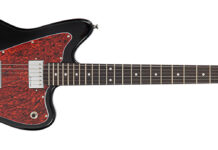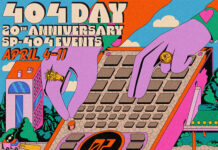With 'Lay It On Down,' Kenny Wayne Shepherd Broadens His Musical Horizons
Twenty-three years into his career, modern blues star Kenny Wayne Shepherd had a single overarching goal for his eighth studio album, Lay It On Down: “I wanted to make the best record I’ve ever made,” he says. “To do that, I had to get out of my comfort zone. I worked with a new producer, Marshall Altman, and I wrote with a bunch of people I’ve never worked with before. I put myself in situations where I had to react differently, and that made the whole thing pretty exciting.”
Shepherd’s last solo album, 2014’s Goin’ Home, was an all-covers, all-blues affair, but Lay It On Down is comprised of all-original material that spans country (“Hard Lesson Learned”), horn-infused R&B (“Diamonds & Gold”) and rootsy rock and roll (“Baby Got Gone”).
“I went in a more contemporary direction on this album,” he explains. “It shows diversity within the band but also the genre of blues. Blues is the foundation, but it runs deep. It’s there in country and soul. You don’t have to play straight blues to be playing a form of blues.”
Over the years, the guitarist has held his own beside players like Joe Satriani, Steve Vai and his Rides bandmate Stephen Stills, but he insists that flash playing took a backseat to in-the-pocket grooves on Lay It On Down.
“I didn’t feel the need to show people every lick that I know on these songs,” he says. “Sometimes that’s appropriate, but other times you play to the material. My objective here was to put across great tunes and great stories. But there’s a few tunes where I smoke on guitar—‘Ride of Your Life’ definitely called for a lot of heat.”
While Shepherd doesn’t label himself a purist, he and Altman went old school and recorded the new album to analog tape.
“That was really about making ourselves happy with the end result,” Shepherd says. “Whether listeners can detect the subtle differences with tape, I don’t know, but we feel that we’re giving the people something that’s sonically superior. And that impacts how you play while you work, so in the end the product is just better.”
GUITARS
Various Fender Stratocasters (1958, 1959, 1961), Fender Kenny Wayne Shepherd signature series Stratocaster, Gibson Custom Shop Firebird, Gibson Custom Shop Les Paul, Les Paul Axcess, Martin KWS-16 signature series acoustic-electric
EFFECTS
Vox Clyde McCoy wah, Ibanez Tube Screamer, Tycobrahe Octavia, Analog Man King of Tone overdrive, Analog Man Bi-Chorus, original Uni-Vibe, Jam Pedals Llama delay
AMPS
Fender 1965 and 1967 “Blackface” Bandmasters, Fender 1959 tweed Bassman, Fender tweed 1957 Deluxe, Fender 1964 “Blackface” Vibroverb (all customized by Alexander Dumble)
Source: www.guitarworld.com











